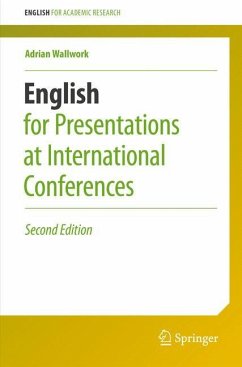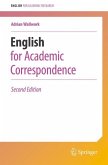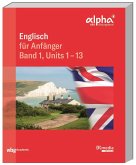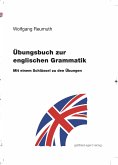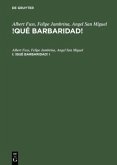Good presentation skills are key to a successful career in academia. This guide provides examples taken from real presentations given both by native and non-native academics covering a wide variety of disciplines.
The easy-to-follow guidelines and tips will teach you how to: plan, prepare and practice a well-organized, interesting presentation
avoid errors in English by using short easy-to-say sentences
improve your English pronunciation and intonation
gain confidence, and overcome nerves and embarrassment
highlight the essential points you want your audience to remember
attract and retain audience attention
deal with questions from the audience
This new edition contains several additional features, including stimulating factoids and discussion points both for self-study and in-class use. New chapters also cover:learning from talks on TED
networking with potential collaborators, professors, fellow researchers
interacting successfully with non-native audiences
posters
EAP teachers will find this book to be a great source of tips for training students, and for preparing both instructive and entertaining lessons.
Other books in the series cover: writing research papers; English grammar, usage, and style; academic correspondence; interacting on campus; plus exercises books and a teacher's guide.
Please visit http://www.springer.com/series/13913 for a full list of titles in the series.
Adrian Wallwork is the author of more than 30 ELT and EAP textbooks. He has trained several thousand PhD students and academics from 35 countries to write research papers, prepare presentations, and communicate with editors, referees and fellow researchers.
The easy-to-follow guidelines and tips will teach you how to: plan, prepare and practice a well-organized, interesting presentation
avoid errors in English by using short easy-to-say sentences
improve your English pronunciation and intonation
gain confidence, and overcome nerves and embarrassment
highlight the essential points you want your audience to remember
attract and retain audience attention
deal with questions from the audience
This new edition contains several additional features, including stimulating factoids and discussion points both for self-study and in-class use. New chapters also cover:learning from talks on TED
networking with potential collaborators, professors, fellow researchers
interacting successfully with non-native audiences
posters
EAP teachers will find this book to be a great source of tips for training students, and for preparing both instructive and entertaining lessons.
Other books in the series cover: writing research papers; English grammar, usage, and style; academic correspondence; interacting on campus; plus exercises books and a teacher's guide.
Please visit http://www.springer.com/series/13913 for a full list of titles in the series.
Adrian Wallwork is the author of more than 30 ELT and EAP textbooks. He has trained several thousand PhD students and academics from 35 countries to write research papers, prepare presentations, and communicate with editors, referees and fellow researchers.
"English for Presentations at International Conferences is designed as a manual or user guide to help readers find relevant information quickly ... . Factoids followed by the What's the Buzz? feature which includes the objectives of each chapter and specific questions pertaining to the topic at hand. ... Anyone seeking to enhance their skills and gain confidence as a scientific or academic speaker would greatly benefit from consulting this very practical manual from Adrian Wallwork." (Dana Di Pardo Léon-Henri, ASp - la revue du GERAS, Issue 70, November, 2016)

